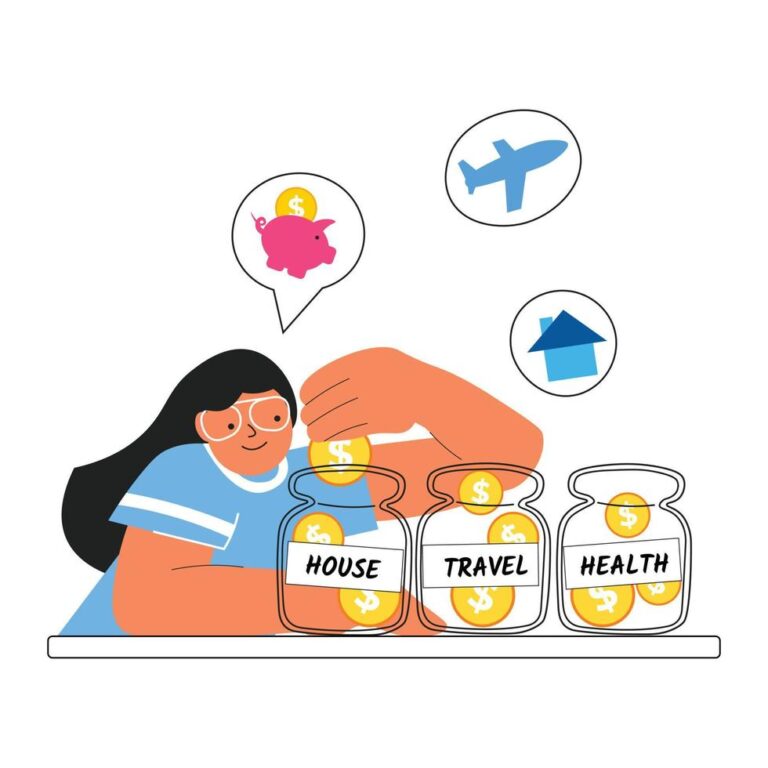What is Financial Literacy? Benefits of Financial Literacy
What is Financial Literacy?

Under Personal Finance, Financial Literacy refers to the individual ability to think and understand how to and where to use various financial skills in the field like Investing, Budgeting, Retirement Planning, Debt Management and many more. Financial Literacy offers a wide range of financial knowledge which helps individuals to make more informed decisions regarding money and its personal finance.
Basic Concepts in Financial Literacy

1. Budgeting
No matter whether your income is big or small, until you make proper budgeting techniques surely you will lose income. Budgeting is a simple technique which helps to make a plan that maps out the income versus expenses. Financial Literacy help us to understand know basic budgeting techniques.
2. Investing
No matter how much money you are earning it’s not worth it until you invest. Money is not all about getting it is all about investing, so investing our income into assets like stock, bond, gold, real estate makes your money safe and offers a healthy return in the long term.
3. Debt Management
Financial literacy aligns individual debt properly which helps to understand proper skills to manage debt responsibly. Understanding internet rates, repayment terms and overall impact of a debt are primarily responsible to a personal financier. It is applicable to all sorts of loans and credits such as student loans, credit card debt or mortgages.
4. Retirement Planning
Let’s not skip this part under Financial Literacy. Retirement planning is also crucial in an individual career. Retirement planning includes identifying income sources, travel expenses, making a proper saving plan and managing the asset properly. It helps us to evaluate risk tolerance and protect assets and income without any massive changes. Retirement planning helps understand retirement accounts like 401(k) and IRA and create sustainable financial plans for the future.
5. Credit Score
A credit score is a numerical representation, typically ranging Between 300 to 850. These 3 digit numbers represent creditworthiness and repay debts on time. Hence these scores are a clear picture about your credit risk to the rate you are charged for this credit. In order to maintain a good credit score basic financial literacy is crucial. It helps us to be aware of credit limits and maintain a healthy credit score.
Benefits of Financial Literacy
1. To understand basic financial concepts
First and Foremost things to learn under Financial Literacy is to know the basic financial concepts especially for beginners to start a futuristic personal finance journey. It helps us to have a clear view and basic understanding about some financial concepts like budgeting, savings, and investing and debt management.
2. Enhance saving habits
Individual savings habits are positively influenced by financial literacy. How well he or she understands the money and savings, according to how well they will act. Saving habits are influenced by many factors, his budget techniques, investing, expenses tracking and debt management. Individuals with a high level of financial literacy can ensure greater financial stability and save more funds for upcoming unforeseen events.
3. Help to make an informed financial decision
Perhaps, Financial Literacy majorly relies on individual financial decisions. Ranging from daily expenses to annual budgeting techniques, financial awareness is crucial. It will also empower individuals to make sound decisions about their finances like choosing the right financial services and products. Financial decision includes evaluating loans, negotiating contracts, and understanding the implications of financial agreements.
4. Help to Prevent Devastating Financial Mistakes
Financial Literacy helps us to understand where our financial mistakes happen. Those who don’t understand properly their seemingly innocent financial decisions may have long term implications that cost them money or impact life plans. Literacy boasts individuals avoiding mistakes with personal finances and basic money management.
5. To make effective financial management
Basically Financial Literacy helps to make sound financial management. It will help us to create and adhere to a budget, manage incomes (including side hustle), and reduce expenses and debt management and so on.
6. Ready for Financial emergencies
Life is full of unexpected things, most likely people facing more health problems. Hence, savings or health insurance or term insurances help us to prepare well in advance to get individuals ready for uncertain events. Person having high financial knowledge can overcome any sort of financial emergencies and insecurities. Losing a job, major unexpected expenses can lead to more financial impactful.
7. Improve sense of confidence
With accurate knowledge about finance, individuals can easily choose what life they want and choose with greater confidence. More financially stable and secured person makes more confident life decisions and he likely achieves the outcomes. They are less likely to be surprised or negatively impacted by unexpected incidents in their life.
8. Financial Literacy help to reach individual desired goal
Everybody has a goal in their life and it must be fulfilled through a certain level of financial securities and budgets. It can be fulfilled through understanding the budget and saving a certain amount of money. People hold them accountable to their finance and set a course for achieving important financial goals. Understanding Financial Literacy is to help to be able to afford a dream today, they can create a plan that can make it happen.
9. Increase financial independence
Finance is lifeblood in every organisation and even in our life too. It is very important to be financially stable to reach our desired life goal. Financially literate person has the courage to take control of his finances and make well informed financial decisions.
10. Strengthen economic stability
Individual Financial Literacy indirectly contributes to overall economic wellbeing of individuals and communities too. Those who are aware of personal finance are likely to stabilise their income and they are likely to rely on government assistance, leading to greater economic stability and growth in society.







